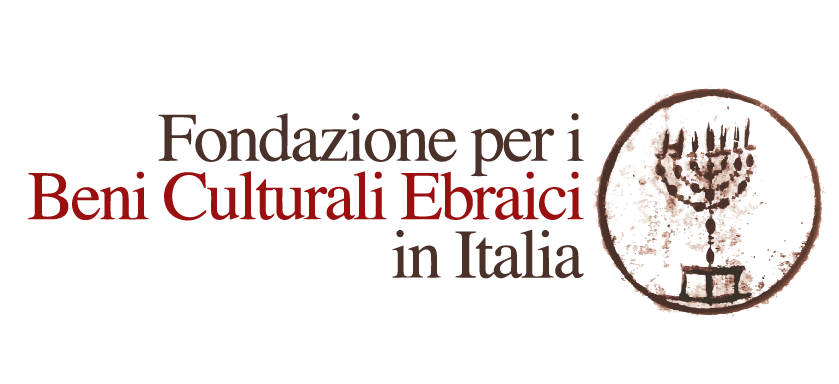Charter
ARTICLE 1
A Foundation named “FONDAZIONE PER I BENI CULTURALI EBRAICI IN ITALIA – ONLUS” has been formed.
The Foundation is a NON-PROFIT ORGANISATION OF PUBLIC INTEREST in accordance with Art. 10, section 1, paragraph i) of Law Decree 4 December 1997 n° 460.
ARTICLE 2
The Foundation’s headquarters is in Rome.
ARTICLE 3
The Foundation, which is not for profit, has the sole purposes of:
a) Promoting the conservation, restoration and enhancement of Jewish artistic and cultural heritage in Italy, including indicatively all assets of Jewish cultural, religious, archaeological and bibliographic interest, studies and research about them, and to disseminate knowledge of them (also through publications, conventions, seminars and so on) in Italy and abroad;
b) Providing funding, study bursaries, and receiving donations for the aforesaid purposes;
c) Maintaining partnerships and taking initiates with any public and private bodies and institutions, both national and international, which may be interested in its purposes in any country. It may also carry out, in addition to its institutional activities, any other activity which is ancillary or directly related to them. The Foundation may not, however, carry out any activities other than its institutional ones, or those which are ancillary or directly related to them.
ARTICLE 4
The Foundation’s assets consist of:
a) The assets indicated in the Articles of Association of the Foundation, provided for that purpose by the Unione delle Comunità Ebraiche Italiane (hereafter also referred to as U.C.E.I.);
b) Other movable assets and real estate which may come into the possession of the Foundation by effect of inheritance, legacy, donations, gifts, contributions from individuals and organisations, destined to increase its assets, and those which shall be acquired through conversion of the assets or by allocating income to assets, that is to say from other sources.
ARTICLE 5
In order to perform its institutional activities and those which are ancillary or directly connected to them, the Foundation has the use of:
a) The income of its assets;
b) Sums deriving from organisations or individuals which are not intended to increase its assets;
c) Other income which may derive from its institutional activities. All of the Foundation’s revenues must be exclusively set aside for performing its institutional activities or those which are ancillary or directly connected to them; unless otherwise stipulated by law, during its lifetime the Foundation is expressly forbidden to distribute in any form, directly or indirectly, any profits or remainders deriving from administration, funds, reserves or capital.
ARTICLE 6
The Foundation is administrated by a Board of Directors made up of between seven and eleven members, as deliberated from time to time by the U.C.E.I. Board. The Board of Directors is nominated for the first time in the articles of association, and subsequently as follows:
– The President pro tempore of the Unione delle Comunità Ebraiche Italiane, as a member by right;
– The other members designated by the Unione delle Comunità Ebraiche Italiane, without restrictions as to nationality and residence.
The President of the Unione delle Comunità Ebraiche Italiane will remain in office for as long she/he fills this role and until replaced by a successor. The other members shall remain in office for three years and may be re-confirmed.
Should one or more members resign before the end of their mandate, the replacement shall be chosen in compliance with the appointment procedure outlined above. In this case, the President, or the person standing in for the President, shall send the request for appointment to the U.C.E.I.; should the U.C.E.I. not take action by thirty days following the request, the replacement shall be made by the Board of the Foundation, by co-option.
The Board Directors thus nominated shall remain in office until the expiry of the mandate of the Director who they have replaced. In any case, the Directors shall remain in office until they have been substituted. The position is not remunerated.
ARTICLE 7
The Board nominates from among its members, through a majority vote, a President, one or more Vice-Presidents and, where deemed necessary, a treasurer, determining the functions of each of these figures. It may nominate, again through majority vote, a Secretary, who may come from outside the Board. It may also deliberate, through the same majority voting system, to set up an executive committee within the Board itself, determining its composition and functions, and may delegate to one or more of its members part of its powers or, if proposed by the President, part of the President’s powers; to form other advisory bodies, promote the formation of supporting committees.
ARTICLE 8
The Board is responsible for, in pursuing the aims of the Foundation and in performing its institutional, ancillary and related activities, the ordinary and extraordinary administration of the Foundation and its assets, with the greatest powers; the promotion and organisation of its activities; sourcing the funds required for this purpose; disbursing the funds gathered; granting study bursaries; founding prizes and contributions to aid scientific and editorial initiatives. The Board may, by absolute majority of its members, regulate through a special directive all of the matters pertaining to the functioning of the Foundation which are not regulated by this Charter. The financial year ends on 31 December of each year. The Board approves the provisional balance sheet by 30 November of the year previous to the financial year to which it pertains, and approves the final balance sheet by 30 April of the subsequent year to which it pertains.
To supplement the provisional balance sheet, each year the Board will write up a schedule of activities and, to supplement the final balance sheet, a report on the activities carried out. Notwithstanding the dispositions of art. 7 and of section II of this article, the Board’s deliberations are valid with the presence of at least five members and with the majority approval of the measures taken. In case of an equal number of votes cast for and against, the vote of the President, or his/her substitute, shall prevail.
ARTICLE 9
The President holds the legal representation of the Foundation. Among other things, the President, as well as the Director(s) who may be delegated thereto by the Board in compliance with art. 7 of this Charter, is responsible for opening bank or post office current accounts; withdrawing from them; closing them; carrying out any banking operations; receiving sums for any purpose, from individuals and companies alike, moral entities, institutions, local, regional or state bodies, issuing valid quittances. The President convokes and presides over the Board in compliance with this Charter, as well as the executive committee, if it has been nominated. In case of absence or impediment of the President, he/she shall be substituted to all effects by the Vice President or by one of the Vice Presidents, as designated by the Board or the Committee.
ARTICLE 10
The Board may nominate an Academic Committee composed of renowned experts, with advisory functions to assist it in decisions relating to the Foundation’s historical, publicity or research activities, determining its formation and working procedures.
ARTICLE 11
The Foundation’s financial audit functions shall be carried out by a Board of three auditors, two of which are nominated by the U.C.E.I. and one by the Ministry for Cultural Heritage. Upon the approval of the final balance sheet, the Board of Auditors will give an account of its activities with an annual report to the Foundation’s Board, to the Union and to the Ministry for Cultural Heritage. The Board of Auditors is nominated for the first time immediately following the legal recognition of the Foundation, and subsequently by the Board of the U.C.E.I. at the same time as the appointment of the Foundation’s Directors. The Auditors’ mandate lasts three years, expires at the same time as that of the Directors, and is renewable. Should one or more Auditors cease their mandate in the course of the three-year period, the Board of the U.C.E.I. will replace the member(s) nominated by them. For the Auditor nominated by the Ministry, the Ministry itself will make arrangements. The Auditor or Auditors thus nominated will cease their activities at the end of the three-year period of the Board’s office.
ARTICLE 12
The Board of the Foundation and on its behalf, the President, will keep the U.C.E.I. informed of the formation of the Board and of any changes to it, will send the U.C.E.I. the provisional and final balance sheets, the Financial Auditor’s report, the schedule of activities and the annual report, as well as a copy of the deliberations concerning the aforementioned matters. The Foundation will maintain appropriate contact with the U.C.E.I. in order to best perform its activities, and for the purposes of seeking mutual coordination. It will consult the U.C.E.I. if any difficulties should arise in carrying out its activities. The U.C.E.I. will have the right to obtain from the Foundation all appropriate information on its activities and its financial management; it may promote the provisions of the law in the interest of the Foundation itself. The legal recognition of the Foundation implies its obligation to inform the Ministry for Cultural Heritage of the composition of the Board and any changes to it; the provisional balance sheet and final accounts, along with the report by the Board of Auditors and the annual report on cultural activities carried out.
ARTICLE 13
In the cases set forth in art. 27 of the Civil Code, the Board may deliberate, in agreement with the U.C.E.I., any opportune changes to or even the termination of the Foundation. In the case of termination, the liquidator(s) shall be nominated by the Board of Directors, following consultation with the U.C.E.I., and the Foundation’s assets will be donated to another existing non-profit organisation, or one that shall be set up, designated by the U.C.E.I., or to the U.C.E.I. itself if it fulfils the necessary requirements at the time, all subject to consultation with the controlling body as required by law.
ARTICLE14
Any changes to this Charter may be deliberated upon a proposal by the Foundation’s Board of Directors, subject to consultation with the U.C.E.I., and subject to the specific approval of the Governing Authority.
ARTICLE 15
For any matters not covered by this Charter, current law shall apply.



